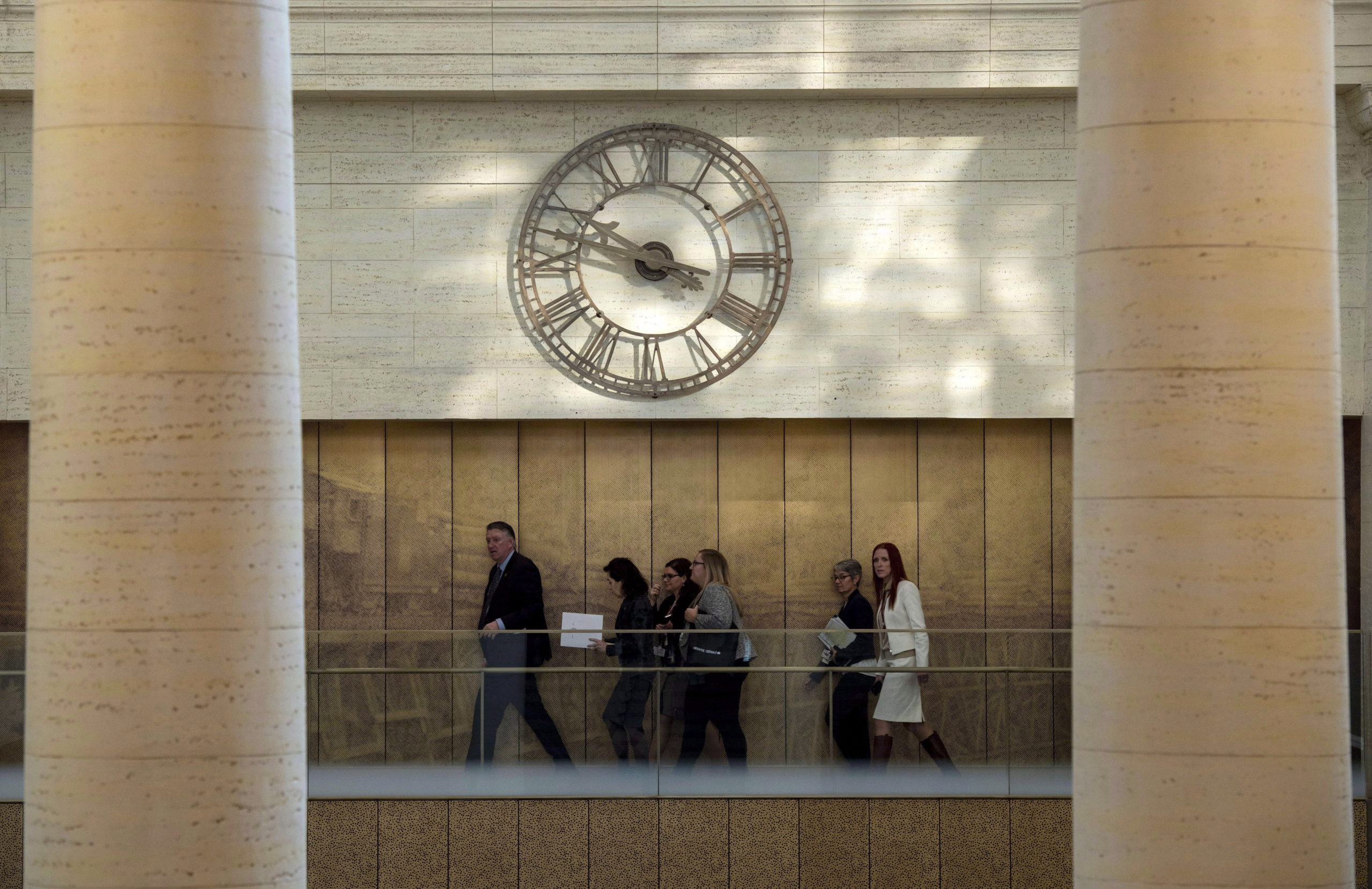If the role of senators is obscure to many Canadians, the role their staffers play must be even more mysterious. I have yet to come across a publication that even attempts to clear the fog surrounding Senate staffers. Daniel Dickin wrote an article a few years ago titled Demystifying the role of parliamentary staffers, but focused his piece on the staff in MPs’ offices. I’d like to share what it’s like to work in a senator’s office.
Working as a Senate staffer is dynamic, evolving, and fast-paced – perhaps not words commonly associated with the Senate of Canada. But 2016 brought about a number of changes to the Upper Chamber, including the nomination of the first batch of non-partisan senators chosen by the newly established Independent Advisory Board for Senate Appointments. With changes on the horizon for the Parliament of Canada Act and an increasing degree of independence, the Senate is now more than ever able to fulfill its role as Canada’s chamber of sober second thought.
Senators who are not in leadership positions tend to have two to four staffers. Typically, a parliamentary affairs adviser, an executive assistant, a parliamentary research assistant, and occasionally a special assistant and/or student intern. Some offices prefer to employ more senior staff with the title of directors: either a director of parliamentary affairs or a director of issues management, depending on the staff member’s background (either policy or administration, respectively). While political science or law degrees might seem like a logical background for these positions, senators often value those with more diverse expertise in fields such as natural sciences, economics, history, and so on.
In the offices of Senate leaders (in some cases known as facilitators), there are often additional positions, such as a communications director, legislative analysts, research assistants, for example. This is because leaders/facilitators have additional budgets distinct from the standard Senate office budget and additional responsibilities that come along with their titles.

Working hours are more consistent on break weeks, when Senators return to their home provinces to spend time with their constituents and families. But when the Senate is sitting there is no clear schedule. Committee work, parliamentary association work, and routine senate proceedings can make the days start early and end late for staff. Senators also have varied interests – international affairs or language rights, for example. You name the issue, there is a senator with an interest in it.
Whether I’m at the office or not, I am either scrolling through Twitter, watching the news, looking for articles related to my boss’s interests, drafting op-eds, reading recently introduced Senate public bills, or staying connected with other senators’ offices so that nothing slips through the cracks. I’m also keeping track of what’s happening in the “other place” (the House of Commons) to know what we can expect in terms of bills and committee studies coming our way.
I started as an intern in a Senator’s office, then became a special assistant, then a parliamentary research assistant before ending up in my current role as parliamentary affairs adviser. Each position comes with its own unique tasks and challenges.
As an intern in a senator’s office, my job was to produce research documents or rough drafts of the statements the senator would give later in the chamber. It was very preliminary work that I would hand over to the parliamentary affairs adviser who I was working under. As special assistant, that same work continued but was coupled with some administrative duties such as organizing the senator’s inbox and drafting letters of congratulations or thanks from the senator to various organizations, stakeholders and individuals. In that case, I was working to support both the parliamentary affairs adviser and the executive assistant.
When I became parliamentary research assistant, the parliamentary affairs adviser had left the office, leaving the policy portion of the work to me. I was now working directly for the senator and with the executive assistant. My work included keeping on top of committees, parliamentary associations, producing statements to be delivered in chamber, drafting speeches, and managing the various social media accounts that belonged to the senator. When the Senate was studying bills, my job included meeting with stakeholders, producing documents with proposed amendments, and writing research papers on the senator’s topics of interest.
This work continued when I was promoted to parliamentary affairs adviser but also included training and working closely with our office’s new intern (who would later become parliamentary research assistant). As Daniel Dickin said in his 2016 article, given the amount of work being undertaken, it was very difficult to set aside the time to train my new colleague. She was thrown into the deep end and told to swim, which she did magnificently. Because no two work days are the same, it is difficult to come up with a standard “employee training manual.” In a senator’s office, skills like adaptability, intellectual nimbleness, and taking initiative are quite possibly just as important as educational qualifications.
Senate staffers, and probably Commons staffers as well, often use these positions as stepping stones for many other types of jobs – be it with the public service as a government liaison, with lobbying groups, in the private sector, or beyond. Parliament is often seen as a fortress, and so those who know the ins and outs of accessing staff or senators/MPs are highly valued. Other staffers, as Dickin pointed out, go on to pursue public office with policy objectives in mind that germinated during their time as a staffer.
Dickin concluded with his goal that, “Eventually, we will have a better understanding and therefore a better respect for some of Canada’s hardest-working public servants.” I want to add that I hope my piece has clarified some of the perks, challenges, and unique opportunities that working on Parliament Hill has provided me. And I would like to encourage any and all youth to consider applying to the multitude of opportunities that are available, be it with the Senate, the House of Commons, or the Library of Parliament. You will not regret it!
The views expressed in this op-ed are those of the author and should not be attributed in any way to her employer.
Photo: Gov. Gen. Julie Payette delivers the throne speech in the Senate chamber in Ottawa on Sept. 23, 2020. THE CANADIAN PRESS/Adrian Wyld






